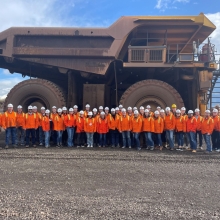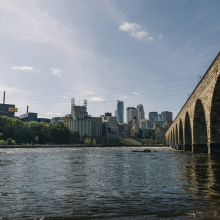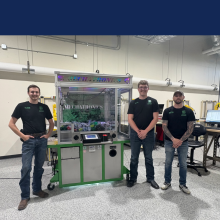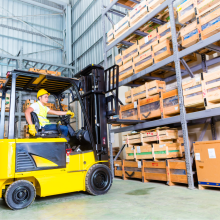Progress in permitting reform

By Doug Loon
President and CEO
Minnesota Chamber of Commerce
It has been a busy week at the Capitol and a busy week here. This week, I am traveling to western Minnesota to meet up with the Leaders Lab program. Now in its 10th year, the Leaders Lab program is designed to provide leadership skills to Minnesota business leaders and emerging business leaders. Our time in Willmar has been going well, with visits to the dairy and pork industries and a stop at Minnesota’s MinnWest Technology Campus, an exciting hub of emerging technology critical for future growth.
Meanwhile, there has been important progress at the Capitol regarding the budget, which has now been fully submitted by the governor. With the revised budget forecast in place, the legislature must now shift its focus to finalizing the budget, as only three weeks remain until the April 11 deadline for committee approvals. Stay tuned as this major shift occurs. However, policy issues remain on the table, including the R&D tax credit, reforms to paid family and medical leave and other emerging tax issues. The Minnesota Chamber is working every day to make Minnesota more competitive and to ensure that passed laws are refined to be more effective and better aligned with the interests of the business community.
One of the key topics we've been discussing in Willmar is permitting reform. As I’ve mentioned in previous podcasts, Minnesota needs a more efficient and effective permitting process. However, permitting remains a significant burden, particularly for large industrial projects requiring Tier 2 permits, which are often delayed. Last year, the Chamber Foundation produced a report on this issue, which has become the foundation for some of the reforms currently being considered at the Capitol and within state agencies.
This week, the Chamber Foundation released a progress report to assess where things stand. While we have seen modest progress in federal air permitting – thanks to new transparency initiatives – there are still significant delays within the system. These delays create barriers for businesses and economic development officials working to attract and build critical projects that support economic growth while meeting Minnesota’s high environmental protection standards.
Permitting efficiency is essential for maintaining a strong business climate. We need to build on the progress we've made to ensure Minnesota remains competitive and capable of processing industrial permits in a timely manner while upholding our environmental commitments. Our report shows that other states – including Iowa, Wisconsin and Illinois – have managed to achieve both efficiency and high environmental standards.
Thank you for supporting Minnesota business and our state’s private sector economy. We at the Chamber appreciate all you do! I’ll catch up with you next week on the Minnesota Business Podcast.
Recommended Articles
The Minnesota Chamber of Commerce released this letter on behalf of more than 60 CEOs of Minnesota-based companies today.
The...



